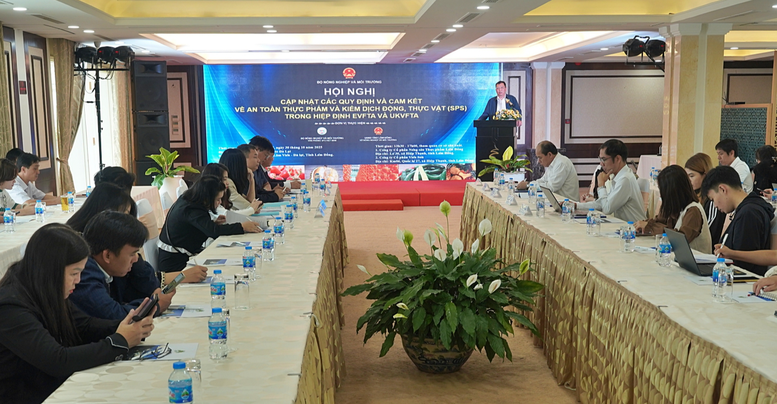
Overview of the conference - Photo: VGP/Do Huong
Today (October 30), the Ministry of Agriculture and Environment coordinated with the Department of Agriculture and Environment of Lam Dong province to organize a conference "Updating regulations and commitments on food safety and animal and plant quarantine (SPS) in the EVFTA and UKVFTA Agreements".
Mr. Ngo Xuan Nam, Deputy Director of the Vietnam SPS Office, said that since August 1, 2020, the Vietnam - European Union Free Trade Agreement (EVFTA) officially took effect, agricultural trade between Vietnam and the EU has achieved many positive results. Many key industries such as coffee, pepper, seafood and vegetables have effectively taken advantage of opportunities from the agreement.
For the UK market, after 4 years of implementing the Vietnam – United Kingdom of Great Britain and Northern Ireland Free Trade Agreement (UKVFTA), Vietnam’s agricultural and food exports to the UK have maintained an average growth rate of about 10% per year. This is a positive signal, showing great potential and clear effectiveness from the implementation of bilateral trade commitments.
Although agricultural exports to the EU and the UK have grown strongly, in addition to advantages, there are still many challenges, especially related to food safety and disease control.
According to statistics from the Vietnam SPS Office, each year Vietnam receives about 1,000 notifications from markets belonging to 166 WTO members. Of these, the EU and the UK are the two markets with the highest number of changes in food safety and quarantine regulations.
For the EU market, regulations on maximum residue levels for pesticides and antibiotics change frequently. Some active ingredients are allowed to increase, while others are reduced. An important feature is that the EU specifies detailed maximum residue levels for each product and each industry.
"For example, the same type of fruit but different varieties have different residue levels for each active ingredient. This is a factor that businesses and management agencies need to pay special attention to when exporting to this market," Mr. Nam emphasized.
In addition, the EU's border control regulations are different from many other countries. Every 6 months, the EU will review imports from third countries. If businesses comply well with border control, food safety and packaging and labeling regulations, the EU will adjust the frequency of inspections, increasing or decreasing depending on the level of compliance.
Vietnam is currently one of the countries with the fewest products subject to border control, thanks to the long-term efforts of management agencies and businesses. Currently, there are only four products on the inspection list: durian (20% inspection frequency), okra and bell peppers (50% with certificates), dragon fruit (30%). Compared to many other countries, reducing the number of controlled products to only four items is a remarkable achievement.
Notably, in the first nine months of 2025, the number of warnings from the EU on Vietnam's agricultural exports decreased by about 50% compared to the same period last year, reflecting the efforts of businesses to improve quality and comply with regulations. "This is a very encouraging result, affirming that Vietnamese agricultural products exported to the EU, a key market, are of high quality and have been strictly assessed," Mr. Nam emphasized.
However, businesses should not be complacent. According to data from the Vietnam SPS Office, even small shipments, such as 3 kg of dried chili, if residues are not properly controlled, can be warned by the EU. This is an important reminder to strictly comply with regulations, even for small shipments, to ensure the reputation and quality of Vietnamese agricultural products in the international market.
At the conference, experts updated food safety and animal and plant health (SPS) measures in the EVFTA and UKVFTA, and provided notes on new notifications and draft regulations. The content focused on exported seafood, standard operating procedures in packing houses and cold chains, as well as regulations on labeling and packaging of agricultural products in the EU and the UK.
The European Union market with a population of over 450 million people and a total GDP of 19,400 billion USD is one of the three largest agricultural import markets in the world . The EU's demand for agricultural imports is increasing, forecast to reach nearly 364 billion USD in 2025, equivalent to an increase of 2.6%.
Do Huong
Source: https://baochinhphu.vn/nong-san-viet-duoc-ghi-nhan-tai-thi-truong-eu-102251030111651609.htm


![[Photo] General Secretary To Lam meets former British Prime Minister Tony Blair](https://vphoto.vietnam.vn/thumb/1200x675/vietnam/resource/IMAGE/2025/10/30/1761821573624_tbt-tl1-jpg.webp)
![[Photo] National Assembly Chairman Tran Thanh Man receives foreign ambassadors who came to say goodbye](https://vphoto.vietnam.vn/thumb/1200x675/vietnam/resource/IMAGE/2025/10/30/1761820977744_ndo_br_1-jpg.webp)
![[Photo] The Third Patriotic Emulation Congress of the Central Internal Affairs Commission](https://vphoto.vietnam.vn/thumb/1200x675/vietnam/resource/IMAGE/2025/10/30/1761831176178_dh-thi-dua-yeu-nuoc-5076-2710-jpg.webp)
![[Photo] General Secretary To Lam attends the Vietnam-UK High-Level Economic Conference](https://vphoto.vietnam.vn/thumb/1200x675/vietnam/resource/IMAGE/2025/10/30/1761825773922_anh-1-3371-jpg.webp)
![[Photo] Touching scene of thousands of people saving the embankment from the raging water](https://vphoto.vietnam.vn/thumb/1200x675/vietnam/resource/IMAGE/2025/10/30/1761825173837_ndo_br_ho-de-3-jpg.webp)
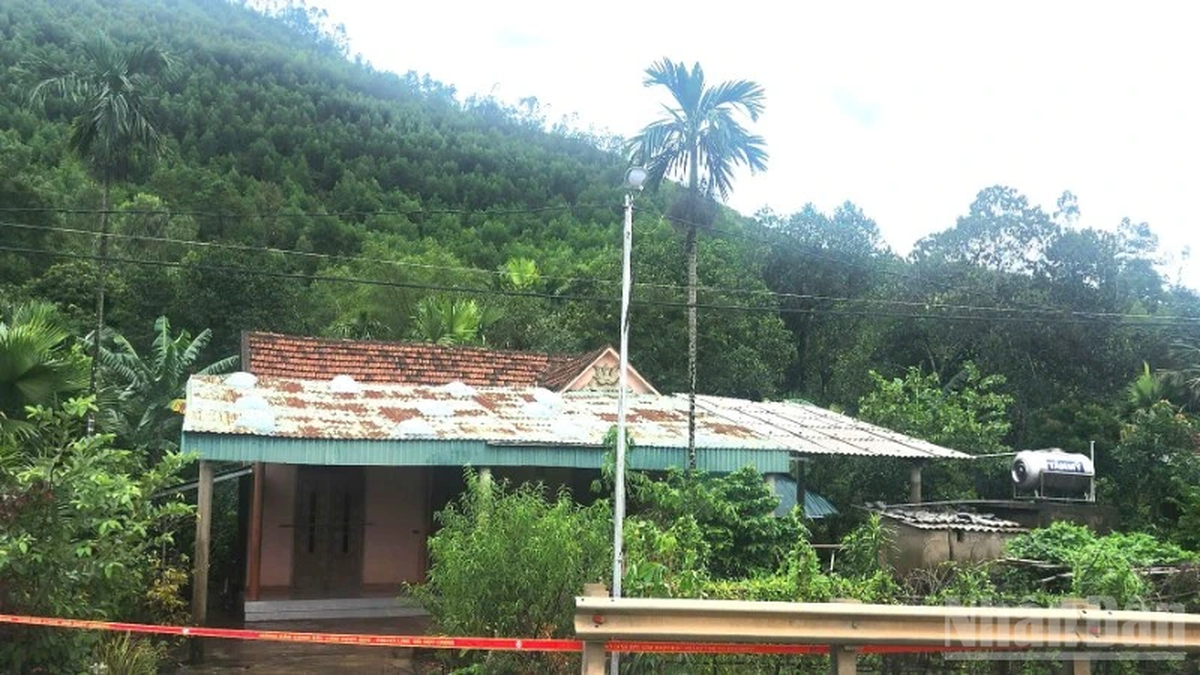






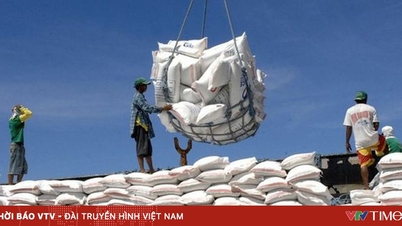




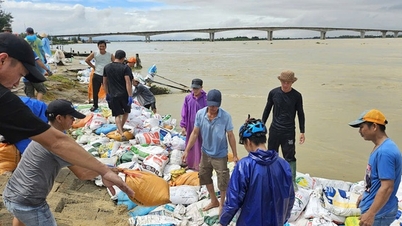
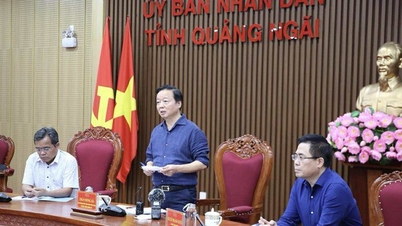


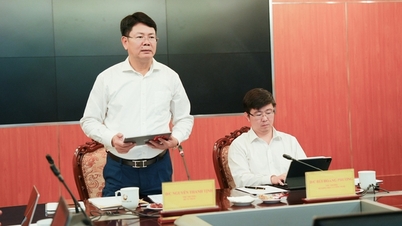
























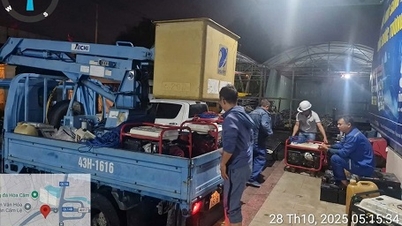



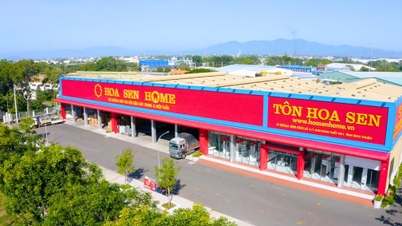















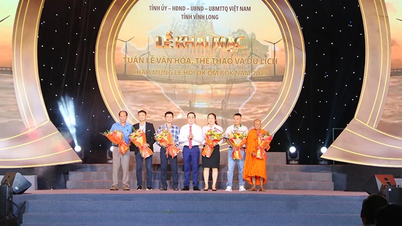


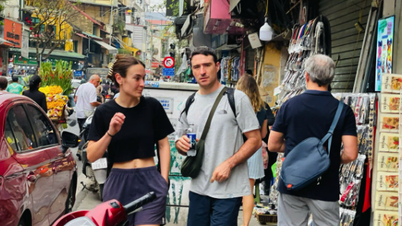
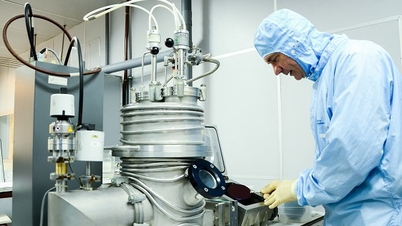

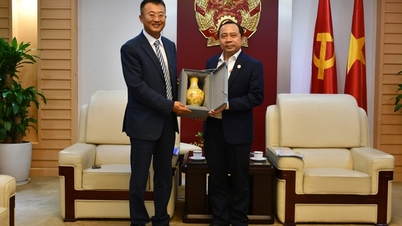
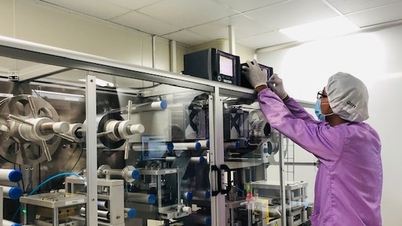
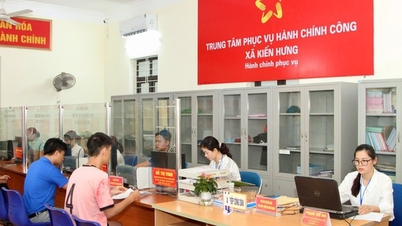
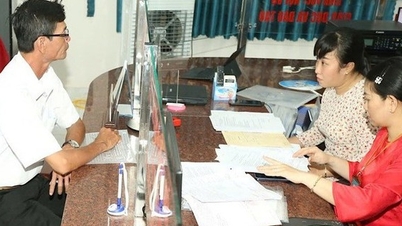
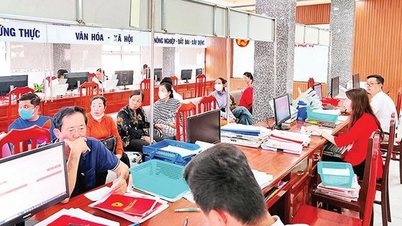
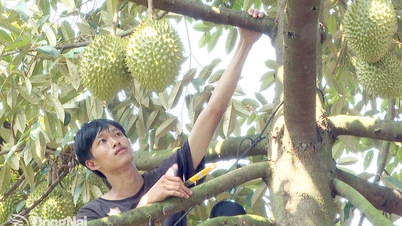

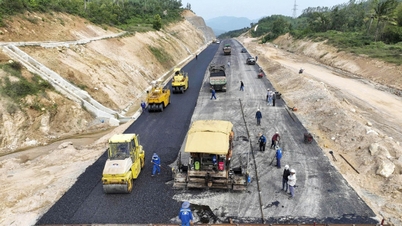



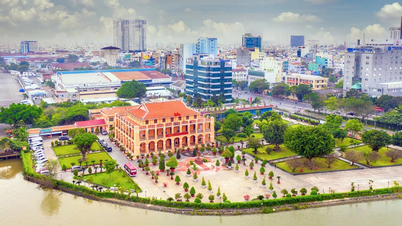




















Comment (0)